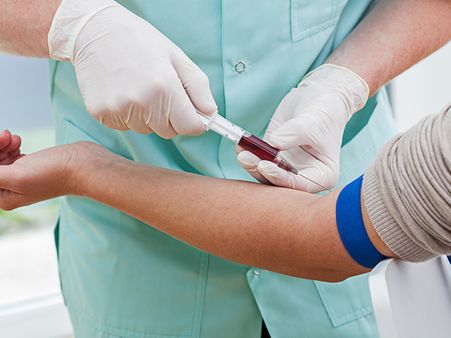Just In
- 27 min ago

- 9 hrs ago

- 11 hrs ago

- 11 hrs ago

Don't Miss
- Movies
 Palang Tod OTT Release Date: When & Where To Watch Ullu App Web Series Siskiyaan Season 3? Is New Season On Ca
Palang Tod OTT Release Date: When & Where To Watch Ullu App Web Series Siskiyaan Season 3? Is New Season On Ca - Sports
 DC vs GT IPL 2024: Why Shubman Gill Held Back Spinner R Sai Kishore Till 19th over?
DC vs GT IPL 2024: Why Shubman Gill Held Back Spinner R Sai Kishore Till 19th over? - Travel
 Escape to Kalimpong, Gangtok, and Darjeeling with IRCTC's Tour Package; Check Itinerary
Escape to Kalimpong, Gangtok, and Darjeeling with IRCTC's Tour Package; Check Itinerary - News
 Explained | Who Is Karen McDougal, Key Witness In Trump's Hush Money Trial?
Explained | Who Is Karen McDougal, Key Witness In Trump's Hush Money Trial? - Finance
 DCB Bank Q4 Results: PAT Grew 9% To Rs 156 Cr, NII Jumps 4.5%; Dividend Declared
DCB Bank Q4 Results: PAT Grew 9% To Rs 156 Cr, NII Jumps 4.5%; Dividend Declared - Technology
 OPPO Find X7 Ultra Camera Deep-Dive: Pushing the Boundaries of Photography on a Smartphone
OPPO Find X7 Ultra Camera Deep-Dive: Pushing the Boundaries of Photography on a Smartphone - Education
 MP Board Class 10th, 12th Results 2024, Know Alternative Ways to Check Your Result
MP Board Class 10th, 12th Results 2024, Know Alternative Ways to Check Your Result - Automobiles
 Aston Martin Vantage Launched In India At Rs 3.99 Crore
Aston Martin Vantage Launched In India At Rs 3.99 Crore
World Aids Day 2020: Diagnosis, Treatments And Management Of HIV Infection During Pregnancy
Every year, on 1 December, the World Aids Day is recognised around the world to raise awareness about this fatal disease caused by the human immunodeficiency virus (HIV). The day aims to unite people in the fight against HIV, support and care for people already infected with HIV and to commemorate people who have lost their lives due to AIDS.
According to a study based on 2018 report, around 37.9 million people in the world is HIV positive, out of which 49.6 per cent is women and 4.5 per cent children. The mother-to-child transmission of HIV during gestation is the main cause of increased cases of HIV infections among children. [1]
HIV can cause pregnancy complications such as stillbirth, low birth weight and preterm birth in HIV-positive pregnant women. However, the chances of HIV in newborns can be reduced by effective antiviral medications.
In this article, we will discuss more about HIV and pregnancy. Take a look.


Factors Affecting HIV Transmission From Mother To Child
The transmission of HIV from mother to child can occur both in the perinatal and postnatal period. In the prior, it can occur in the uterus, during labour or delivery; while in the latter, it can get transmitted during breastfeeding. However, most of the cases of transmission are during the perinatal period.
Other factors that may affect the risk of transmission are the maternal stage of illness, increased vaginal secretion and duration of rupture of membranes during the labour.


Can Pregnancy Cause Progression Of HIV?
According to a study, the progression in HIV is not affected by pregnancy. [2] In cases when a pregnant woman is affected by dual infection (HIV and malaria), there can be an increased risk of maternal or foetus death.
The advancement in medical science, improved access to care, early diagnosed and timely treatment are reducing the numbers of HIV cases in newborns. Also, with specialised care, HIV is becoming the rare cause of mortality in pregnant women.
In areas such as African countries, where there's a high prevalence of HIV due to lack of awareness of the disease, necessary steps are taken to make people informed about HIV transmission and prevention.

Diagnosis Of HIV During Pregnancy
The diagnosis of HIV is carried out by the detection of specific antibodies or antigens or both. Rapid HIV-1 antibody tests are based on analysing plasma, saliva, blood or serum through effective tools and providing results in around 20 minutes. [3]
Limitations of the antibody test are primary infection (when a person is infected for the first time and there are no antibodies in their body) and children younger than 18 months (as they might still have HIV antibodies from the mother).
Other tests include Multispot rapid HIV testing that helps identify and differentiate between HIV-1 and HIV-2 infections, PCR test


Preconception Management and Counseling
It includes counselling based on the needs and HIV status of women who are trying or planning to conceive. In couples, where one is HIV-positive and the other is HIV-negative, antiretroviral therapy is suggested to reduce the viral load in the positive partner so that they can have effective unprotected sex, without the risk of the transmission of HIV. [4]
Another method is artificial insemination in which sperms are artificially introduced into the womb of a woman for fertilization. The process is applicable for a couple in which the woman is HIV positive and the man is HIV negative. In cases where it's vice-versa, a sperm donor or Vitro fertilization technique is suggested.
If both the partners are positive, they are suggested to start antiretroviral therapy before the conception.

Treatments
According to the National Antiviral Therapy Guidelines by the WHO, every HIV-infected pregnant woman must receive the antiretroviral therapy, irrespective of the viral load in the body or white blood cell level.
Antiretroviral therapy is regarded as one of the most effective treatment methods for preventing HIV in newborns and long-lasting viral suppression in the mother. In this method, around 20-12 antiretroviral drugs are used since the very beginning of the treatment (before the conception) with a fixed-dose combination. The drugs (in combination) thus, help decrease morbidity and mortality rate. [5]

How To Prevent HIV During Labour And Delivery?
Pregnant women who are under antiretroviral therapy are suggested mainly for a caesarean section as it is effective in preventing the risk of transmission of HIV to the child. If the C-section cannot be performed due to unavailability of the resources or other problems, necessary steps must be taken to balance the risk associated with premature rupture of membranes.
Methods that involve penetrating into the vagina such as spiral scalp electrodes must be avoided to prevent the virus entry to the foetus. Also, routine episiotomy should be avoided to prevent transmission. [6]

How To Prevent Virus Transmission During Breastfeeding?
The incidence of postpartum transmission of HIV through breastmilk is 40-45 per cent. [7] Many safe alternatives are available to prevent HIV transmission risk to newborns through breast milk.
Some of the recommended methods by the CDC include infant formula and the use of diluted, boiled and sweetened cow's milk, in case the infant formula is too costly. [8]

To Conclude
AIDS is a lifelong disease and can only be suppressed through effective medications. If you are HIV-positive and planning to conceive, consult a medical expert for the best plans starting from the conception till the breastfeeding and even lifelong.
-
 astrologyWorld AIDS Day 2023: Messages, Slogans, Wishes And Quotes Of Hope, And Compassion
astrologyWorld AIDS Day 2023: Messages, Slogans, Wishes And Quotes Of Hope, And Compassion -
 healthWorld HIV/AIDS Day: Ancient AIDS Treatments: Did They Stand the Test of Time?
healthWorld HIV/AIDS Day: Ancient AIDS Treatments: Did They Stand the Test of Time? -
 healthWorld HIV/AIDS Day: What Is The Difference Between HIV and AIDS?
healthWorld HIV/AIDS Day: What Is The Difference Between HIV and AIDS? -
 healthWorld AIDS Day: 3 Not So Common Ways HIV Can Spread from Person to Person
healthWorld AIDS Day: 3 Not So Common Ways HIV Can Spread from Person to Person -
 pregnancy parenting14 Children Infected With HIV, Hepatitis After Blood Transfusion In UP Hospital: How Did It Happen?
pregnancy parenting14 Children Infected With HIV, Hepatitis After Blood Transfusion In UP Hospital: How Did It Happen? -
 healthSexual Diseases You Might Have Without Symptoms
healthSexual Diseases You Might Have Without Symptoms -
 pulseZero Discrimination Day 2023: Date, Theme, And Why It Is Observed
pulseZero Discrimination Day 2023: Date, Theme, And Why It Is Observed -
 disorders cureWorld AIDS Day 2022: Can Kissing An HIV Positive Person Cause An HIV Infection?
disorders cureWorld AIDS Day 2022: Can Kissing An HIV Positive Person Cause An HIV Infection? -
 wellnessHIV Positive Patients In Haryana To Get Free Health Facilities Like Lab And Radiological Tests
wellnessHIV Positive Patients In Haryana To Get Free Health Facilities Like Lab And Radiological Tests -
 kidsCipla, DNDi Launch 4-In-1 Antiretroviral Treatment For Children With HIV
kidsCipla, DNDi Launch 4-In-1 Antiretroviral Treatment For Children With HIV -
 disorders cureNew Study Signals The Development Of Unique Genetic Treatment For HIV
disorders cureNew Study Signals The Development Of Unique Genetic Treatment For HIV -
 disorders cureOver 17 Lakh People Contracted HIV In India In Last 10 Years By Unprotected Sex: RTI Reply
disorders cureOver 17 Lakh People Contracted HIV In India In Last 10 Years By Unprotected Sex: RTI Reply


 Click it and Unblock the Notifications
Click it and Unblock the Notifications





